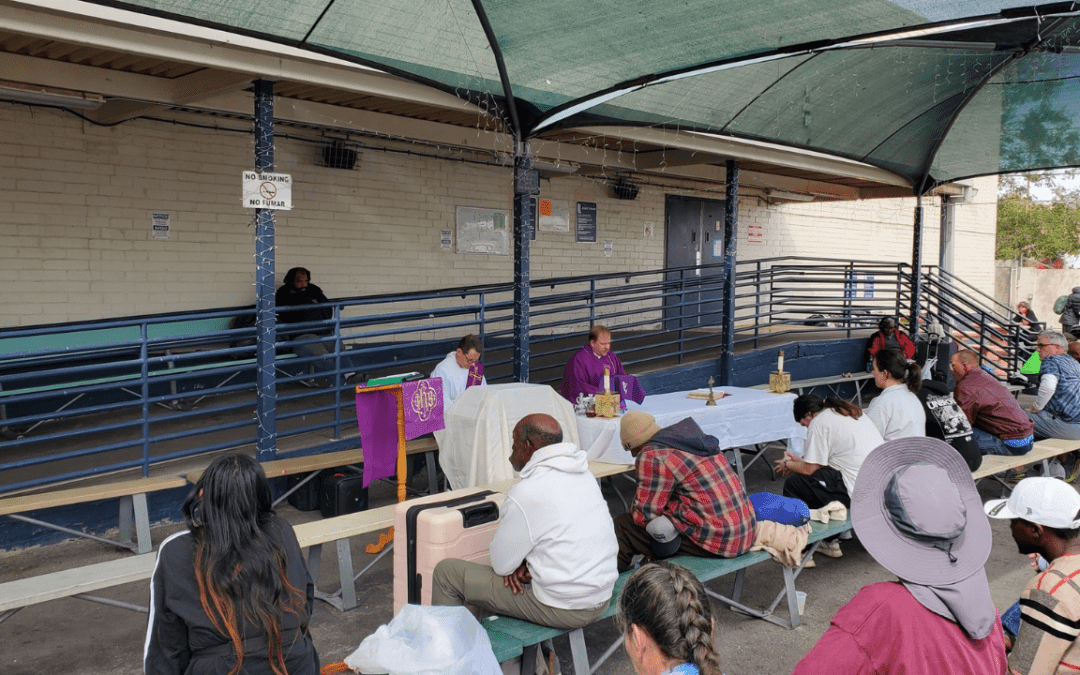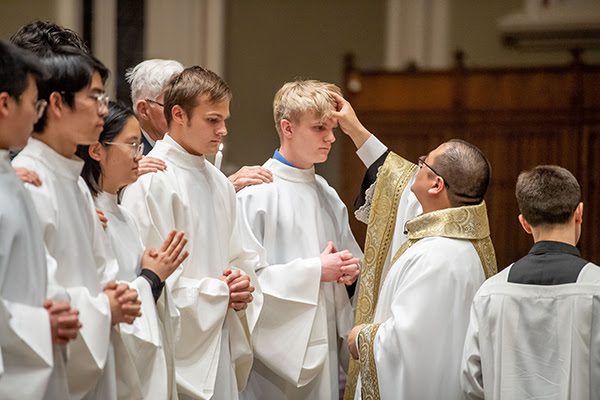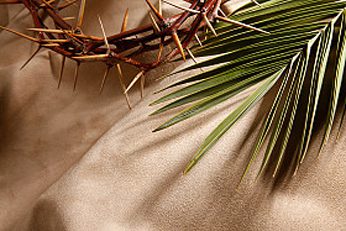
This week the Church enters into the greatest drama of all time; the Passion, Death, and Resurrection of our Lord Jesus Christ. I find it to be one of the most moving and prayerful times of the year. Each time Holy Week rolls around I feel that I gain something new from the experience. It is never the same rote thing, but instead it is a fresh and intimate experience of the central events of our Christian faith. This week and over the course of the Triduum the Church celebrates the act of Christ's offering as the true sacrifice to gain our redemption. The great liturgies of the week are inspirational, thought provoking, emotional, prayerful, and filled with grace. I am blessed this year to have the opportunity to participate in the Mass of the Lord's Supper on Holy Thursday evening at the Basilica of the Sacred Heart at Notre Dame, followed by the Good Friday service at St. Stanislaus Church, which is part of the Holy Cross-St. Stanislaus Parish, and concluding the Triduum by celebrating and serving at the Easter Vigil back at the Basilica of the Sacred Heart.
This past night the Moreau Seminary community joined the wider community of priests and Bishop Kevin C. Rhoades in celebrating the Chrism Mass at St. Matthews Cathedral in South Bend. We serve in an interesting diocese as South Bend and Fort Wayne are considered one diocese under Bishop Rhoades. The main cathedral is located in Fort Wayne, and the Bishop will celebrate the Chrism Mass there tomorrow night.
The Chrism Mass is one of my favorite liturgies of Holy Week, and it is often one of the most overlooked Masses on the liturgical calendar. However without the Chrism Mass the Church would not function. There are two elements to the Chrism Mass: first, the Bishop and his presbyterate renew their priestly promises. The Bishop's homily is usually a strong exhortation for his priests to continue to serve in a humble and sincere manner. Then the Bishop blesses and consecrates the various oils needed for the Sacraments in the Church.
The first oil that is blessed is the Oil of the Sick, which is used for the Sacrament of the Anointing of the Sick, Last Rites, Extreme Unction, whatever you wish to call it. Secondly, the Bishop then blesses the Oil of the Catechumenate, which is the oil used on those who will be baptized. Finally the Bishop then consecrates the Sacred Chrism, which is used during baptism, Confirmation, and Holy Orders. The Chrism oil is mixed by the Bishop during the liturgy and balsam is added to give the oil its fragrant smell.
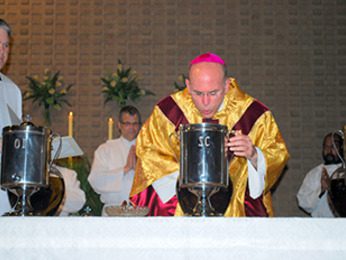
The Bishop then breathes on the oil, imitating Christ breathing the Holy Spirit on the Apostles in the post-Resurrection appearances in John's Gospel. The oils are then distributed to the parishes for use during the liturgical year. In this way the local Church renews her connection to the apostolic office of the Bishop. It is from the Bishop that the local Church emanates, and the Chrism Mass symbolizes the connection between the Bishop and his flock.
The Chrism Mass is traditionally placed on Holy Thursday in the morning, but due to logistical problems it is often moved to another day during Holy Week. It is the beginning of the sweeping drama that will conclude with the Easter celebration at the end of the Triduum. The oils blessed and consecrated at the Chrism Mass are distributed to the parishes at the Mass of the Lord's Supper on Holy Thursday where they will be kept in the church for use throughout the year, beginning with the Easter sacraments.
As we enter into Holy Week let us keep in mind the journey that we are continuing. As Lent comes to a close on Wednesday, and we enter into the most Sacred time of the year, let us pray for grace and the ability to draw near to God. If you have the opportunity I would invite you to participate in as many liturgies as possible this week. To truly experience the Triduum it is important to keep in mind that Holy Thursday, Good Friday, and the Easter Vigil constitute one liturgy in three parts. Enter into prayer and ask the Lord Jesus to open our hearts to his love for us.
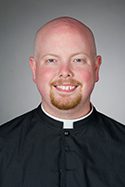
Mr. Timothy Weed, C.S.C., is in his first year of temporary vows and Master of Divinity studies as a seminarian at Moreau Seminary on the campus of Notre Dame. Tim is originally from Grand Rapids, Michigan.




